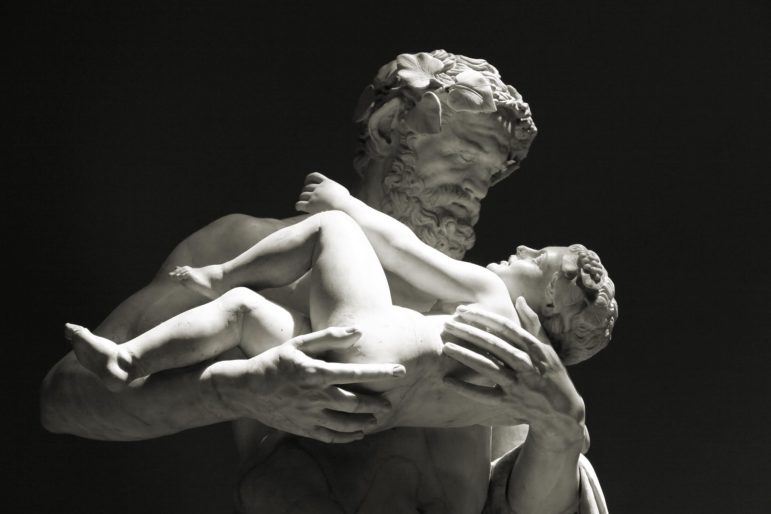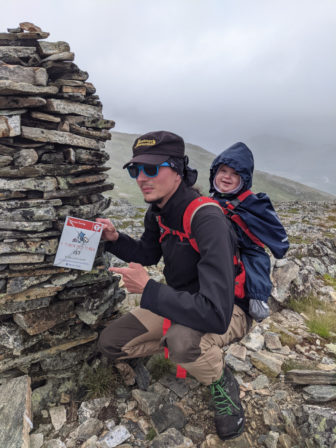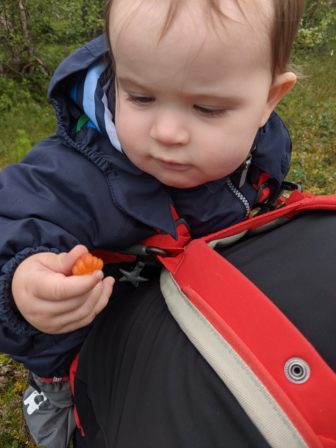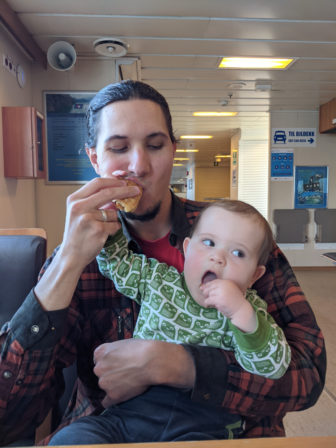
Editor’s note: There is some coarse language in this piece.
It is the morning of August 21, 2020, and I am not feeling very good. I am tired, really tired. I have not slept a minute the previous night, or the night before, and I have no idea when I will be able to next. At that point in my life, I have gone through a few all-nighters (chiefly in my college days), but this is something else; I feel like an old rag-doll, completely devoid of energy and life, and solely subsisting on coffee and the hope for something to happen.
My wife, on the other hand, is not so much tired as she is in pain. Laying on the hospital bed, contorting and convulsing at semi-regular intervals, she is being kept busy by giving birth. She, too, has not had the chance to rest at all for the previous 30 hours, but in addition to being sleep-deprived, she is going through what looks like an insane amount of struggling pain, only somewhat attenuated through trips to the bathtub and various drugs.
Sitting next to her by the bed, I feel rather helpless. There is truly nothing for me to do except be there, holding her hand, and handing her a bit of water every now and then, and it has been going on for two whole nights and a day. We have been transported into some sort of pandemonium, where day and night don’t mean anything anymore. The only constants are the neon lights on the ceiling, the beeping of various machines, as well as pain and discomfort.
Then, almost all of a sudden, the convulsions become overwhelming and a nurse helps place my wife in a sitting position, before telling her to push. It is all fused in my memory as a short and intense blurb, but it actually took a good half an hour before, from under my wife, a small, mostly hairless mammal appeared. The nurse grabbed it, showed it to me, shouted “it’s a girl!” before depositing it onto my wife’s chest.
We had just become parents. I had just become a dad.
What the actual fuck?

A marble statue of Silenus cradling the infant Bacchus [Bradley Weber, CC BY 2.0]
Growing up as the lone child of a mostly unemployed single mother on welfare, I never experienced what many would deem a “normal” childhood. Yet, despite the many struggles we went through, I overall had a great time being a kid. I ate my fill every day, never was cold, did well at school, hung out with friends, enjoyed both nature and culture – hell, I even had a Game Boy Color and a Playstation!
Still, as I transitioned from childhood to my teenage years, I became persuaded that I would not start a family of my own, but rather do my own thing, whatever the future might bring. This rather innocent kind of a certitude was, thankfully, broken when I met the girl who would later become my wife at the university, and I quickly started to seriously consider what it would mean to start a family. My reasons for considering this were multiple, and finally piled up to the point where it seemed the right thing to do. I will try to explain the train of thought I went through.
Here in Norway, it is actually somewhat easier to have and take care of kids than in many other nations, even developed ones. At the university where I was studying, I often saw young mothers taking their kids to the university day care, and most student housing complexes had rather roomy family accommodation for students with small children. I also perpetually seemed to run unto various kindergarten and school groups everywhere I went: at the library, the museum, in the street.
Six years ago, when my girlfriend and I got married, we moved to an apartment that was literally a stone’s throw from a kindergarten. So, every morning, when I had to get up early to go to work, I would jog past its gates and hear the laugh and the howling of those little kids, who, regardless of the weather, happily ran around, romped, and played with seemingly not a care in the world. It was truly something that lifted my spirits every single time.
The period between meeting my girlfriend and finally marrying her was also the time where I most deeply researched Paganism, both ancient and modern. Reading ancient myths, heroic sagas, or even hearing about Pagan organizations the world over convinced me that it is not only very possible, but quite natural to live Paganism in the flesh, through a family. After a few years, I was pretty much convinced that I would want to be a father someday – but when?
Three years after getting married, life was pretty good. I had a lot of work, thanks to an insane uptick in tourism within my home region of Arctic Norway, and I was even getting into some coordinating and training gigs. On top of that, I was getting more and more involved with the wider academic and Pagan scene here in Europe, and all in all felt like things would just continue to improve. So, at the end of 2019, my wife and I took a trip to the archipelago of Spitsbergen, in the high Arctic, near Greenland, and had an absolutely fabulous time. It was our first real vacation since getting married three years prior and, upon coming back home, we came to the conclusion that now was the time. Originally, all went well. My wife was in good health, I was in good spirits, and I even managed to bag a full time job within my field. Things looked absurdly good.
Then came COVID.
All of a sudden, it looked like we had done something incredibly irresponsible. No one knew the extent of the pandemic’s damage, but still, countries were closing their borders, hospitals were getting jammed, people died left and right, and there seemed to be no certainties left in the world. In that process, I also lost my new fancy job, and, on the top of that, we had to face a much weakened pregnancy care program. We could forget in-person classes and most prenatal visits, and it was even uncertain whether I would be allowed to be near my wife when she gave birth.
Thankfully, once the summer came, cases started to drop, we were blessed with beautiful weather, and I was ultimately allowed to join in on the fun of birth-giving as a mostly clueless, if supportive, observer.

Wandering in the mountains is a core part of child rearing in Norway Photo. [L. Perabo]
The first hours of becoming a parent were extremely confusing. As mentioned at the beginning of this article, neither of us had slept for two whole nights, and due to COVID no family member was there. Still, thanks to the professionalism and sympathy of the nursing staff, things had gone relatively well. The little girl, whose name was still up in the air, was in good health. She soon received her first sips of milk, before being cradled into a light woolen jumpsuit and hat.
While my wife was attempting to rest for a few minutes, I took the kid over to be measured and weighted. She looked so small and peaceful, and I immediately felt a bond between, not only me and her, but me, her, and my wife. I will especially never forget the look my wife gave to the baby the second the nurse handed it over to her, a few instants after she had been born. It was an almost disarmingly loving gaze, the equivalent of which I had never seen before. It was as if I was looking not at the material reality of my wife feeding our newborn child, but as if I saw every single mother since the dawn of time meeting, and falling deeply in love, with their own offspring.
Still, the following 48 hours felt anything but magical. Still high on the lack of sleep, I had to depart the hospital to grab supplies at our house. Suddenly, being outside the hospital felt as if I had been thrust into a strange, unknown world, where nothing seemed familiar anymore. As I walked the streets of our town to get to our apartment, I progressively realized that it was not the world that had changed, but merely my understanding of it, and my place within it. Everything seemed foreign and distant, not because they actually were, but because I now was progressively being made aware of a new reality where my life would have a new meaning, and a very different course.
In this fever-dream of a reality, I still managed to get everything we needed and headed back to the hospital. What followed were two more excruciatingly stressful nights, where neither of could sleep much at all, fearing that somehow, just like that, something bad would happen to our little baby. This thankfully did not happen and we slowly started to get into a routine, a new routine consisting mostly of feeding the babe, changing dirty diapers, and looking at each others in amazement that we had actually managed to produce a child.
After two nights at the hospital hotel (free of charge, like almost everything we experienced during this process), we were able to head home and start our new life together as a family of four. (We also have a cat).

The author’s child on her first berry-picking trip. [L. Perabo]
This is when things started getting complicated. Thanks to Covid, there never was talk of any family member being present at any time during or following childbirth, so we were pretty much left to our own devices trying to care for this strange, if cute, small creature. More than the social and family restrictions established during the pandemic, it was the uncertainty that took its toll on us: uncertainty about how the world would be when Covid was over, if it ever ended, uncertainty surrounding employment, and whether we would be able to financially and practically care for our child. Especially during the first winter, it was pretty tough. The isolation from living in a small town, north of the Arctic circle, thousands of kilometers from family, and enduring snowstorms, the long polar night, and having to avoid social contacts as much as possible lead to some trying times.
Still, our little girl, whom we called Verdandi, after the Norse Norn who governs the present, endured all of this especially well. All the time we had her, she has been so incredibly nice, peaceful, cute, and easy-going that we came to the conclusion that the ancestors must have been aware of the somewhat precarious situation we had been thrown in, and brought up the gentlest soul they had in their midst to send to us. For this, I thank them, and all the gods, every single day.
Now, with Verdandi being over one and a half, I can safely say that things are looking good again. Through countless trials and errors, as well as with the help and encouragement of friends, family, and peers, we have been rewarded with a tall, happy, healthy girl with wavy light chestnut hair, who loves nothing more than spying on cats, running around, and making her stuffed animals kiss. Maybe it is because she is so good, but I now rarely even stop to consider how our lives have so drastically changed since she came into the picture. I am more flabbergasted by the degree to which I am not shocked by these changes anymore. I am a dad. I have no idea how I did it, but I did it, this is my reality now, and that’s okay.
True, in many way, one’s worldview does change when getting a kid, but there is no sudden epiphany of revelation. Kids don’t come with an instruction manual, and holding your child in your hand won’t help make sense of the mysteries of the world just like that, but it can help. In many ways, after becoming a parent, I progressively started to shift my understanding of what was important, and what was not. Over many days, weeks, and months, I started to understand what works, and what does not, what should be done, or should be avoided, in order to keep my child healthy and happy. Everything else seemed so incredibly minor that in many ways, and I developed a tunnel-vision where the welfare of my spawn became my main, if not sole, goal in life. Saying it like that, it is almost as if I became a secondary character in my own life, and somewhat, that is okay too.
After having a kid, I think we start reflecting on every single one of our actions through the lens of my child. Habits that we used to have for years will be challenged; our social lives are forever shaken up; we start doubting ourselves and experience conflicted emotions about, well, almost everything.
The material situation is also likely be affected. Even here in “socialist” Norway, raising a child costs quite a bit. All the clothing, diapers, and food that must be purchased, are not tax-deductible (although kindergarten expenses are). It can also be challenging for people like me, who don’t have normal nine to five jobs, to balance work and home life. Since Verdandi has been born, I have had to say no to tons of high-paying gigs because those did not fit with my now child-determined schedule. Even my wife, who was able to take half a year maternal leave and enjoys a work environment that is somewhat flexible for parents of small children, had to scale back many important projects.
I won’t sugarcoat it: even though I believe it is ultimately worth it, raising a kid is a difficult process, and I don’t blame anyone who feels that they might not be up to the task. People with physical, or mental problems, impoverished folks, and those who don’t have a decent support network should never be pressured into reproducing, but ultimately, if they wish to go down this road, they ought to receive as much assistance as possible. Yet, even with all the support in the world, it is easy as a parent to focus too much on the mundane and practical aspects of parenthood: fine-tuning the diaper-changing process, maximizing one’s own productivity when the small one is at daycare, or just attempting to rest as much as possible whenever the child allows it.

The author and his daughter, doing what she does best, stealing food. [L. Perabo]
Still, it is important not to get locked into a routine where only the child’s material needs are directly addressed: one must also think about what kind of education will be given, how to talk to them about life, death, morals, our place in the universe, and faith in general.
For Pagan parents, it can be quite challenging attempting to transmit one’s values to a child, when society as a whole is either unreceptive, or outright hostile to their faith. Still, one must persevere. After all, bringing a child to the world is also a way to proclaim, loud and clear, in the flesh, “I love life, I am okay with myself, and I can be entrusted with the life of another being.” It is, in a way, an extremely prideful thing to do, to go down the path of parenthood when, ultimately, no one truly knows how to be a parent before becoming one.
In that sense, even if it can seem ill-advised, becoming a parent is a way to reaffirm the value of life, the sanctity of life, and the need for the perpetuation of something that goes beyond your own self. It is, fundamentally, a paroxysmally magical act.
There is also another important aspect to having a child that needs to be addressed, that of helping develop community. Most Pagans the world over would agree that, even if believing and practicing on one’s own is a perfectly valid thing to do, nothing can ever equate being a part of a loving, tightly knit community. While a community may not necessarily be established on blood relations alone, there is no denying that a community cannot thrive, or even survive, without new blood. True, outside people can join a community, people who have only a single interest in common can do perfectly well together, but without children, no community can survive. They bring literal life, and a whole new dimension to just about any grouping of humans there is.
I can speak of my own experience that, having attended quite a few Pagan events over the past few years, the ones that I have the fondest memory of are those where kids were included, if not directly involved. From the lovely shamanistic festival of Isogaisa (which resulted in my first ever article for The Wild Hunt, some seven years back already), to the last Asgardian festival in 2019, looking at kids running around, playing, howling in the woods, listening to music, or just hanging around their parents brought something almost indescribably powerful to these celebrations.
Seeing these small ones enjoying themselves, without a care in a world, being brought up in the Old Ways by loving parents and supportive friends made me feel like I wanted to join them, and send a powerful message to the universe: a message that, despite all, we are going to be okay, that I was ready, one day, to join the ancestors and become but one link in a great chain of life, to be survived by a honorable kin who will one day bring about good things to the world.
So, let us keep hope alive, bring up joyful children, and make our communities, ourselves, and our world, a better place for all.
THE WILD HUNT ALWAYS WELCOMES GUEST SUBMISSIONS. PLEASE SEND PITCHES TO ERIC@WILDHUNT.ORG.
THE VIEWS AND OPINIONS EXPRESSED BY OUR DIVERSE PANEL OF COLUMNISTS AND GUEST WRITERS REPRESENT THE MANY DIVERGING PERSPECTIVES HELD WITHIN THE GLOBAL PAGAN, HEATHEN AND POLYTHEIST COMMUNITIES, BUT DO NOT NECESSARILY REFLECT THE VIEWS OF THE WILD HUNT INC. OR ITS MANAGEMENT.
The Wild Hunt is not responsible for links to external content.
To join a conversation on this post:
Visit our The Wild Hunt subreddit! Point your favorite browser to https://www.reddit.com/r/The_Wild_Hunt_News/, then click “JOIN”. Make sure to click the bell, too, to be notified of new articles posted to our subreddit.
